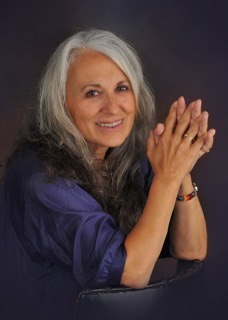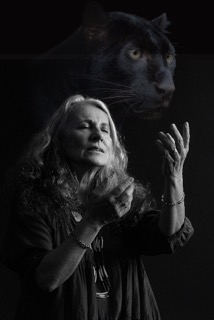Apela Colorado, PhD
 Apela Colorado Ph.D., of Oneida-Gaul ancestry, founded the Worldwide Indigenous Science Network (WISN) in 1989 with assistance from the Canadian International Development Agency and private sector investment.
Apela Colorado Ph.D., of Oneida-Gaul ancestry, founded the Worldwide Indigenous Science Network (WISN) in 1989 with assistance from the Canadian International Development Agency and private sector investment.
The organization fosters the revitalization, growth, and worldwide exchange of traditional knowledge, and safeguards the lives and work of the world’s endangered traditional practitioners.
WISN brings together Western scientists and Indigenous practitioners of traditional knowledge in international workshops, conferences, and through overseas projects.
The work created a forum and established a process to promote consensus, collaboration, and cooperation between experts of Western and Indigenous Knowledge Systems in conservation and education programs and alternative resource development.
Apela received her Bachelor of Arts and Master of Science from the University of Wisconsin. As a Ford Fellow, she studied for her Doctorate at both Harvard and Brandeis Universities, receiving a Ph.D. from Brandeis in Social Policy (with a focus on native addictions) in 1982.
Upon completing her education, Apela established the Spirit Camp cultural revitalization project with the University of Alaska in 1985, drawing from both Native and academic training. She subsequently relocated to the University of Calgary, where she built the Native Social Work Concentration and represented the University’s Division of International Development (the first Canadian international center of excellence) at numerous overseas conferences.
In 1993, Apela founded the world’s first accredited doctoral program in Traditional Knowledge at the California Institute of Integral Studies (CIIS).
Taught from the perspective of the indigenous mind/science and lauded as a ‘breakthrough in education’ by the American Indian Science and Engineering Society, the Indigenous Mind Program took head on the ‘dissociative scismogenisis’ of the post-modern world, working with students from all cultures—with the assistance of indigenous healers—to restore them to the holistic mind of their Ancestors, and to ground that wisdom with the help of technology and science in applications for today’s time.
It was subsequently offered by Wisdom University and Alaska Pacific University and received significant support, including a one million-dollar grant from Ringing Rocks Foundation.
In her capacity as WISN President and Director, Apela has arranged and presided over meetings with many tribal elders, making her one of the best-connected tribal workers in the world, earning the recognition, cooperation, and trust of indigenous healers and elders worldwide.
She has been invited to conduct ceremonies on such occasions as the State of the World Forum in New York in 2002, and has been an invited speaker and representative at many global conferences and forums. Some of these include: the Conference on Religion and Environment sponsored by the President of Indonesia (1992), UNCED planning process for the Earth Summit, University of South Africa (2012), where she presented on the integration of indigenous knowledge within the higher education curriculum development, IUCN World Conservation Congress (Jeju, Korea, 2012, and Honolulu, Hawaii, 2015), Bioneers Conference in Anchorage, Alaska (2012), Healing Our Spirit Worldwide in New Zealand (2015), among others.
Apela’s groundbreaking work in environmental and animal conservation continues today.
Through the formation of the Global Alliance on Big Cat Conservation in 2013, the organization brings together Western conservationist and Indigenous Cultural Practitioners whose cultures are intrinsically linked to big cats to develop new forms of conservation.
 Partnering with the Snow Leopard Conservancy in Bishkek, Kyrgyzstan, Central Asian ICPs developed a white paper which was presented at a subsequent UN meeting on Snow Leopard Conservation, giving ICPs a voice in conservation for the first time in modern history.
Partnering with the Snow Leopard Conservancy in Bishkek, Kyrgyzstan, Central Asian ICPs developed a white paper which was presented at a subsequent UN meeting on Snow Leopard Conservation, giving ICPs a voice in conservation for the first time in modern history.
Also as part of this big cat work, Apela successfully raised more than $1-million dollars for The Global White Lion Protection Trust to secure lands in Timbavati, South Africa, the original homeland of the White Lions, central sacred animal of local indigenous cultural practices and icon of sustainability.
From her doctoral thesis to serving on the board of Nechi Training, Research, and Health Promotions Institute, one of the world’s best culture-based treatment programs, Apela’s work comes full circle with this year’s implementation of the first-ever Mobile Addictions Treatment (MAT) program with the Khomani San Bushmen of the Kalahari. Building on the successful implementation of this program that similar programs can be brought to the indigenous peoples in the Russian Altai, Siberia, and throughout Africa.
Apela’s work has been recognized internationally and WISN activities have been covered in the press by the London Observer, Toronto Times, more than 50 Native newspapers, PBS, CBC, BBC, and New Dimensions Radio.
She has contributed to a number of scientific journals, including David Peat’s publication, “Scientific Pluralism,” “Policy Matters”, IUCN, “Conservation Solutions”, Elsevier.
Her book on Indigenous Mind, ‘Woman Between the Worlds”, Hay House, is scheduled to be published in early 2017.
LINK
Worldwide Indigenous Science Network (WISN)





